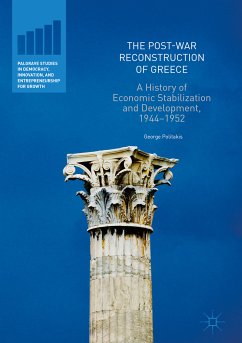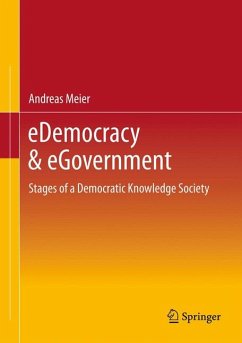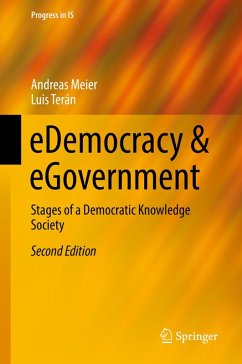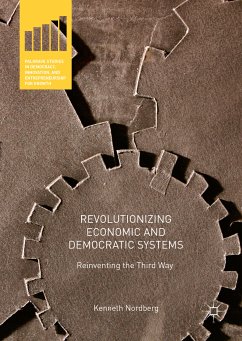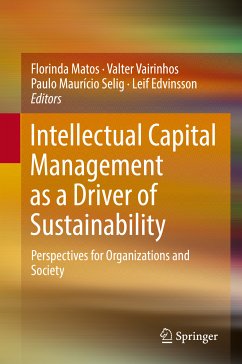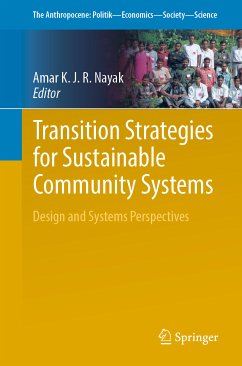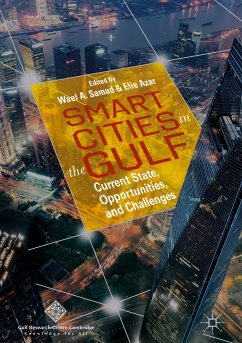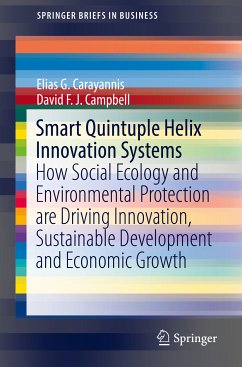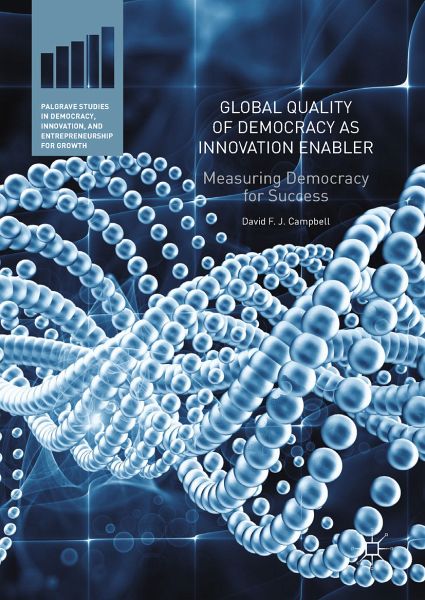
Global Quality of Democracy as Innovation Enabler (eBook, PDF)
Measuring Democracy for Success
Versandkostenfrei!
Sofort per Download lieferbar
68,95 €
inkl. MwSt.
Weitere Ausgaben:

PAYBACK Punkte
34 °P sammeln!
This book assesses the interconnectedness of democracy and economic development. It concentrates on how to conceptualize and to measure democracy and quality of democracy in global comparison. The author makes the argument that a quality-of-democracy understanding based on sustainable development relates crucially with economic growth, but more so with economic development. The empirical macro-model focuses on approximately over hundred countries (in a world model) and covers about a fourteen-year period of 2002-2015, identifying the following basic dimensions as being relevant for further an...
This book assesses the interconnectedness of democracy and economic development. It concentrates on how to conceptualize and to measure democracy and quality of democracy in global comparison. The author makes the argument that a quality-of-democracy understanding based on sustainable development relates crucially with economic growth, but more so with economic development. The empirical macro-model focuses on approximately over hundred countries (in a world model) and covers about a fourteen-year period of 2002-2015, identifying the following basic dimensions as being relevant for further analysis: freedom, equality, control, sustainable development, and self-organization (political self-organization). Readers will appreciate the global perspective the work offers.
Dieser Download kann aus rechtlichen Gründen nur mit Rechnungsadresse in A, B, BG, CY, CZ, D, DK, EW, E, FIN, F, GR, HR, H, IRL, I, LT, L, LR, M, NL, PL, P, R, S, SLO, SK ausgeliefert werden.
Alle Preise in Euro und inkl. der gesetzl. MwSt. | Innerhalb Deutschlands liefern wir preisgebundene Bücher versandkostenfrei. Weitere Informationen: bitte hier klicken
Support
Bitte wähle dein Anliegen aus:
Rechnungen
Bestellstatus
Retourenschein
Storno



